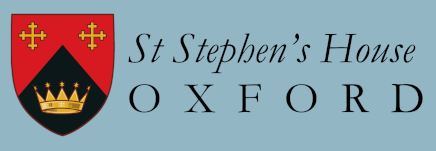St Stephen’s House offers the following academic qualifications validated by the Ministry Division for ordination training in the Church of England:
| Who is eligible for this course? | How long is the course? | How is the course taught? | How is the course assessed? | Who awards the degree? | Where can I find more information? | |
|---|---|---|---|---|---|---|
| University of Oxford, Final Honour School BA in Theology and Religion | It is designed for three-year candidates, with a good 2.1 or first class honours in their first degree but without a degree in Theology. | This is a three-year course. The first two years are spent working towards the BA degree. Candidates who are awarded the degree then spend a further year of study taught and assessed in college before ordination. | The first two years are taught by tutorials, classes and lectures both in college and in the wider university. The third year is taught in-house through classes and lectures. | The assessment for the first two years is by examination and a dissertation. The third year is assessed via written work. | The University of Oxford | Find out more information about the course on the University website. |
| Common Awards BA in Theology, Ministry and Mission | It is designed for three-year candidates, without a degree in Theology. | This is a three-year course. | Teaching and learning take place through a combination of lectures and small-group teaching in college with placements and other engagement with context outside the college. The course is modular in design, and assesses all aspects of the candidate’s preparation for ordination. | Students submit written work for most modules. | The course is validated by Durham University, with all teaching and assessment taking place at St Stephen’s House. | Find out more information about the course on the Durham University website. |
| Common Awards Diploma in Theology, Ministry and Mission | It is designed for two-year candidates without a degree in Theology. | This is a two-year course. | Teaching and learning take place through a combination of lectures and small-group teaching in college with placements and other engagement with context outside the college. The course is modular in design, and assesses all aspects of the candidate’s preparation for ordination. | Students submit written work for most modules. | The course is validated by Durham University, with all teaching and assessment taking place at St Stephen’s House. | Find out more information about the course on the Durham University website. |
| University of Oxford Postgraduate Diploma in Theology and Religion | This course is appropriate for those who have a good first degree in a subject other than Theology, and for whom an intensive academic programme is particularly suitable (for example those hoping to pursue theological research at postgraduate level). | When undertaken as a validated route for ordinands, this is a two-year course. The first year is spent working towards the PGDip qualification; this is followed by a further year of study taught and assessed in college before ordination. | Teaching and learning take place through a combination of lectures and tutorials in the University and the college. | This course is assessed by a mixture of written exam and extended essay. | The University of Oxford | Find out more information about the course on the University website. |
| University of Oxford Master of Theology in Applied Theology | Candidates regardless of age with a degree in Theology and a grading of 67 or more in their final classification for their undergraduate degree. | This is a two-year course. | This is taught by lecture, seminar and individual supervision. Ordinands also receive additional college teaching as part of their formation. | It is assessed by three essays and an experiential project in the first year, and a dissertation in the second. | The University of Oxford. | Find out more information about the course on the University website. |

